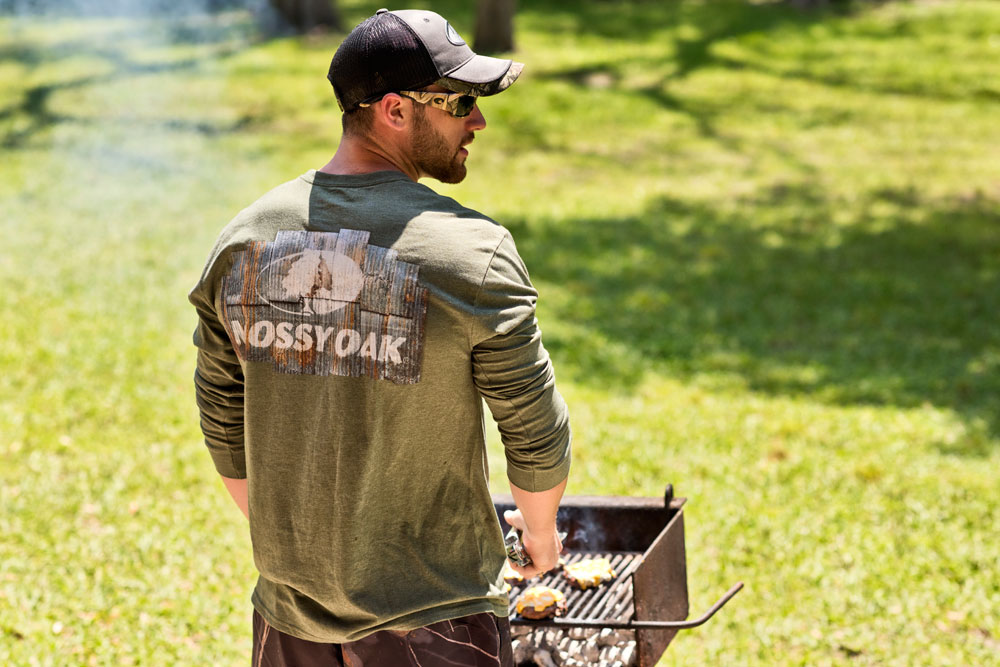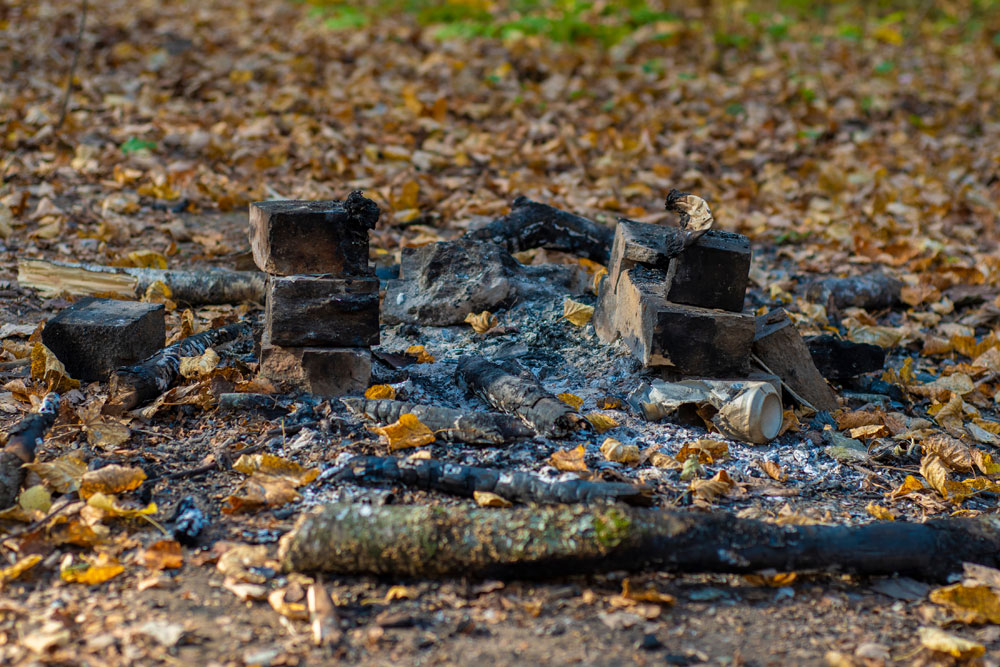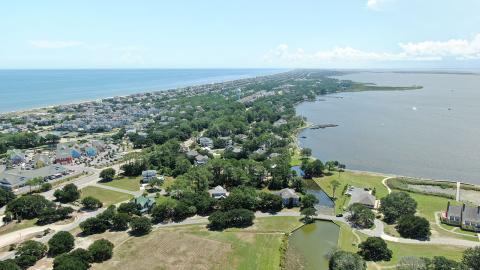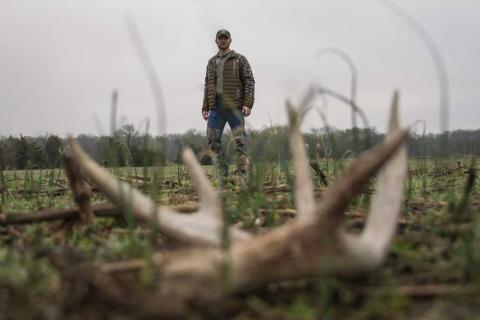Camping is one of America’s favorite pastimes. In fact, between pitching a tent at a campsite or spending the night in an RV or mobile home, it is the most popular outdoor recreational activity. In 2017, U.S. customers spent almost $3 billion on camping equipment.
As humans, we are drawn to the beauty of nature. The outdoors is part of our ancestry and works to uplift our mood and relieve stress. From the initial journey to the challenges involved in cooking and sleeping in the wild, camping is a great learning experience. However, because of its growing popularity, camping is beginning to take an environmental toll.
During busy periods, parks, forests and campgrounds are flooded with campers. While some people demonstrate responsibility, others don’t abide by camping etiquette, leaving the grounds in poor condition. It’s important to be environmentally conscious and to follow camping guidelines.

Camping Dos
Prepare in Advance
Planning ensures you’re familiar with the area and the camping guidelines before you arrive. Read the rules for walking and camping, and search for recommended hiking routes. This allows you to map out your trails and locate the best campsite for your needs.
Perhaps the campsite has a limited number of fire pits and encourages campers to bring their own food. The hiking routes may be rough, meaning specific equipment is recommended. Taking the time to research your campsite and the surrounding area ensures you are aware of potential hazards and the available amenities.
Dispose of Waste Materials Properly
Spending a few days camping can generate a significant amount of waste. Improper litter disposal not only pollutes the environment but can pose a significant hazard to local wildlife. Take waste bags with you and make sure you dispose of all waste in trash cans provided at the site or take the trash home with you. Try to leave the site in the same condition it was in when you arrived.
When getting rid of human waste, the cathole technique is the most commonly accepted form of disposal. Use an entrenching tool to dig a six- to eight-inch deep and four- to six-inch wide hole. Ensure the location is at least 200 ft. away from bodies of water. Remember, most toilet paper isn’t fully biodegradable, so pack it out or use a natural alternative such as moss or leaves. Be aware some hiking and camping sites in sensitive ecosystems or high elevations require you to pack out all your waste. Yes, even that. If you are RV camping, only dispose of waste materials at designated dumpsites.

Use a Dedicated Fire Pit
If you’re visiting a campsite or popular camping location, there may be some infrastructure or facilities in place for visitors. If there are pre-built fire pits, use them rather than creating your own. This helps conserve the area by reducing the amount of damage and potential fire hazards.
If you intend on bringing your own firewood, check beforehand if it is permitted. Wood from a different area can contaminate the forest with invasive species, causing serious damage.
Avoid going to sleep before your campfire is extinguished. Let it burn down to ash and then put it out entirely by dowsing it with water and mixing the ashes with soil or sand. Clean up the remnants of your fire and scatter the cool ashes if possible.
Be Friendly and Helpful to Fellow Campers
If you have previous camping experience, be friendly and resourceful to fellow campers. Some may have the best intentions but may not understand camping etiquette or best practices for that particular area. Lend a hand if someone is in need, say “hello” and yield for passers-by on trails, but don’t be intrusive.
If you notice someone exhibiting dangerous, harmful or environmentally unfriendly behavior, ensure you report them to the park ranger or security guard if they are available. You may want to confront the person yourself, but this could escalate the situation beyond your control, and many Americans are armed.
Learn to Camp Efficiently
Camping efficiently not only reduces your environmental impact but also makes things a lot easier. Taking a minimalist camping approach involves simplifying to the extent your backpack and gear weigh no more than 12 pounds.
The key to camping efficiently is to invest in quality equipment. Use a suitable backpack and bring multipurpose items, such as pocket knives and multi-tools.
However, you shouldn’t expect to become an efficient camper overnight. It takes time to establish your individual needs and to learn what approach is best for you. Document each trip and work toward increasing efficiency and reducing waste.
Leave No Trace
The most important rule to follow when camping is Leave No Trace. These unwritten guidelines ask campers leave the campsite and surrounding environment in the same condition as they found it.
Besides proper waste disposal, this also means taking care when you explore the hiking trails. Don’t step off the designated path, even when making room for other hikers to pass by, as you may accidentally crush local wildlife. Though it may be tempting, don’t take any natural souvenirs with you; leave shells, rocks, leaves and animals where they belong in the forest. It is also frowned upon to leave artistic stacks of rocks or painted rocks, however much you’d like to leave your mark. Others are looking for a wilderness experience.
Camping Don’ts
No Disrupting the Natural Environment
Disrupting the natural environment can mean anything from playing music too loud—even singing by the campfire or drumming—to feeding wildlife.
Interfering with the area can have direct and indirect consequences. Foraging or chopping down wood might seem innocent, but you may be damaging an animal’s habitat. Even deadwood is essential for certain species like birds and insects. Multiply your visit by thousands of people every year, and you can begin to understand why every little bit hurts.
Feeding animals can make them ill or dependent on food brought by campers. Entering restricted areas can disturb young animals or other nested species. Unless your campground is designated pet-friendly, leave your pets at home for their safety and to preserve the natural wildlife.

No Burning Environmentally Harmful Materials
Burning responsibly is one of the most fundamental rules of camping. However, people continue to burn plastics and environmentally harmful materials. Up to 90 percent of wildfires are caused by human negligence, including unattended campfires. So, don’t burn harmful materials, and always ensure your fire is fully extinguished before you leave.
Do Not Let Your Motor Run
If an RV is your solution to how to upgrade your tent, don’t let your engine run idle unnecessarily. The noise and fumes are harmful and bothersome to other campers. Likewise, avoid using your horn or headlights frequently, and opt for a generator that operates at low decibels.
Don’t Leave Leftovers Out That Could Attract Animals
Don’t leave any food remnants around the campsite. Clean up thoroughly, making sure no leftovers are around. Use containers or sealable bags to store food, minimize any scent traces and keep food in a bear-proof box in areas with known predator populations.
Leftovers can attract unwanted guests such as insects, mice, raccoons, opossums or more, threatening inhabitants of the forest. An infiltrated campsite can cause food and trash to be dragged all around the area, damaging the environment and habitats. It creates bad habits in wild animals, and if they become pests they will be adversely dealt with. Also, your food could be unhealthy for animals to eat.
Never assume there are no animals nearby. The outdoors can be dangerous, so it’s best to take every precaution for your safety and that of the animals.
Always Respect Mother Nature
Camping and outdoor activities are some of the greatest ways of learning to appreciate Mother Nature’s beauty. However, without respect and responsibility, forests and natural landscapes are in danger. Campers must be mindful of their surroundings by being environmentally responsible at all times, using Leave No Trace etiquette by leaving their campsite in the same condition they found it.
Mossy Oak Wellness products are designed with that singular goal - to help you get the most from your time outdoors. Our passion for helping people get closer to nature has led us to develop innovative, new products built to not only motivate and inspire you to pursue your best life outdoors but to help you feel better while you’re out there.































